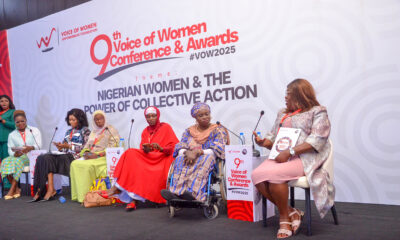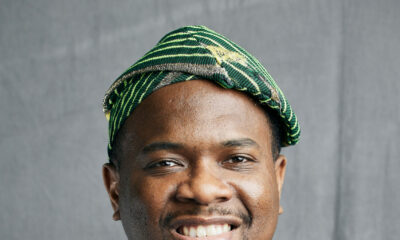Events
Sanicle Pioneers Workplace Health Equity at UN CSW 69: A 3-in-1 Event Beyond Beijing 30
Redefining the Future of Work, Leading Charge on AI, Equity, and Women’s Health in the Workplace at 69th UN Commission on the status of Women, World Bank Meeting, Google Cloud Next, White House Correspondent Dinner and More.
Written by Chaste Inegbedion
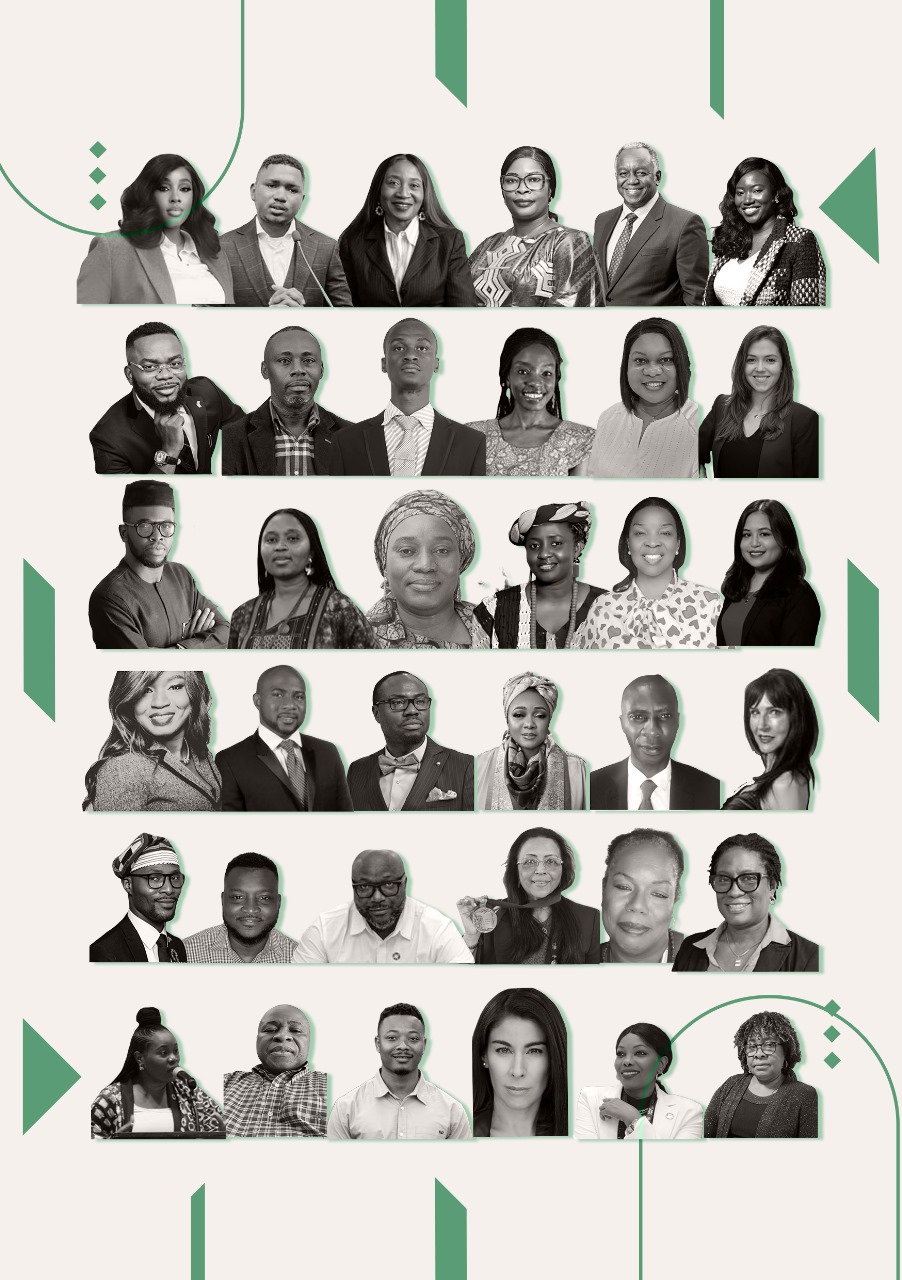 Celebrating May: Labour, Legacy, and the Future of Work with Women at the Center
Celebrating May: Labour, Legacy, and the Future of Work with Women at the Center
Could that be the choice we face in today’s economy?
Labour Day, nestled at the start of May, is more than a long weekend. It’s a chance to reflect on the victories of the trade union movement—those “little things” we now take for granted: the 8-hour workday, pensions, workplace safety, and the minimum wage. But as we stand at the edge of a new future, Labour Day also asks us to look forward.
What does worker advocacy look like in an era shaped by artificial intelligence, health tech, and hybrid work?
What do modern benefits mean in a world where wellness includes menstrual dignity and menopause support?
This May, we’re not just celebrating labour—we’re expanding its definition.
At Sanicle.cloud, we believe the future of work must center women—and empower the men who support them. That means male spouses, team leads, HR managers, and policymakers showing up, not just in principle, but in practice.
From menstrual leave to AI-powered wellness insights, we’re building tools that speak to the realities of today’s workforce. And we know we can’t do this alone. True workplace equity requires a coalition of care, powered by empathy, data, and bold policy shifts.
May this be the month we redefine labour, not only by what we do but how we choose to care.
“I Found My People.”
“Wow, that’s a lot of women.”
Those were the first words I managed to say after leaving my New Jersey apartment and arriving at Columbia SIPA for the Sanicle-hosted Beyond Beijing 30 Summit.
As I stepped out of the car, I caught myself saying, “And now I’m one of them.”
For someone who typically feels overwhelmed in a crowd, that moment was surprisingly grounding. I was surrounded by women—and a few good men—who had all come together for a shared mission: advancing the state of women worldwide.
In a world that often feels like it’s teetering on the edge, the summit offered a powerful contrast. It reminded us that: → The narrative is finally shifting.
→ There are far more of us advocating for gender equity than we think.
→ And more than ever, now is the time to harness that momentum.
As Chaste Inegbedion reflects in his Amazon bestselling book Bomesi, “Women still need a forum to discuss the intractable issues their foremothers confronted decades ago.” In that same spirit, Bomesi offers more than a literary journey—it offers a blueprint. A reminder that we each carry the ability to create environments where success is possible. Where equity isn’t a wish—it’s a structure. Where power, opportunity, and prosperity are not limited by gender.
And that’s what I saw at Beyond Beijing 30—living proof that the future isn’t waiting for permission. It’s already happening, led by women who are rewriting the rules.
– Elizabeth Adebisi,
Newark Community Africa Commissioner
Founder, Icon of Change Initiatives

Elizabeth Adebisi, Newark Community Africa Commissioner & Founder, Icon of Change Initiatives, endorsing the BOMESI Book written by Chaste Inegbedion
The Beyond Beijing 30 Summit, presented by Sanicle and co-hosted by UNA-Nigeria, UNESCO Center of Peace, IBTK Foundation, Femtech Weekend, The Real Studios, Columbia University’s SIPA Pan-African Network (SPAN), AfricaTech NYC, and Luz Maria Foundation, convened a distinguished group of global leaders, policymakers, and changemakers at Columbia University SIPA to mark the 30th anniversary of the Beijing Declaration and Platform for Action.

L-R: Dr Omopeju Afanu, Hawa Taylor Kamara Diallo, Mary Apollo, Rosemond Yeboah, Luz Maria Utrera, Ishmael Byne Taylor-Kamara, Jr. and Chaste Inegbedion
The summit focused on advancing gender equity, health innovation, and economic empowerment for women, culminating in the NOVA Awards, which recognise trailblazers whose contributions continue to shape the future of gender equality.
The event brought together esteemed guests, including Hon. Dr Isata Mahoi, Minister of Gender & Children’s Affairs of Sierra Leone, and Hon. Imaan Sulaiman-Ibrahim, Minister of Women Affairs of Nigeria, alongside keynote speeches from distinguished leaders such as Lady Tee Thompson. Attendees, recipients, and delegates embraced a touch of elegance, dressed in green and gold colours symbolising renewal, prosperity, and strength.

Chaste Inegbedion, Chief Period Officer, Sanicle.cloud Presenting the Nova Award to Hon. Imaan Sulaiman-Ibrahim (Nigeria’s Minister of Women Affairs) with the Secretary General of UNA-Nigeria, Dr Omopeju Afanu
Paul Olugbenga, Founder of The Real Studios, who led the branding of the event, reflected on the symbolism;
The NOVA Prize aesthetics symbolize renewal, prosperity, and strength—just like the honorees we celebrate.

Chaste Inegbedion, Chief Period Officer, Sanicle.cloud Presenting the Nova Award to Hon. Dr. Isata Mahoi, Minister of Gender & Children’s Affairs of Sierra Leone
The event was hosted by Assoc. Prof. Cynthia Obiorah and Ekanem Adeleke who guided a powerful dialogue on policy implementation, innovation in women’s health, and cross-sector collaboration.
In his welcome address, Guy Djoken, Executive Director of UNESCO Center for Peace, emphasized the urgency of activism and policy reform to advance women’s empowerment.

Guy Djoken, Executive Director of UNESCO Centre for Peace, with Nova Recipient Dr. Padmini Murthy, Global Health Director at New York Medical College School of Health Sciences and Tolulope Lewis-Tamoka, Chief of Governmental Relations & Africa, UN Global Compact
“True progress requires collective action and shared responsibility,” Djoken stated, highlighting barriers to education, technology access, and financial empowerment, particularly in Africa.
Hon. Minister Dr Isata Mahoi of Sierra Leone, in her keynote, outlined her country’s strategic efforts to empower women and girls. These initiatives include allocating 22% of the national budget to education, introducing STEM programs for girls with scholarships, and launching vocational training and microfinance schemes.
Creating opportunities for girls to dream, learn, and lead is not just a policy priority—it is a moral imperative, Mahoi said.

L-R: Zhu Yihan of Femtech Weekend, Cecile Delcuvellerie of Yale Inclusion Economics, Chaste Inegbedion of Sanicle, Councilwoman Roxy Ndebumadu OF roxHealth, Rashmi Joshi of Asha AI
Honouring Changemakers and Advancing Women’s Leadership
The NOVA Awards, sponsored by Sanicle and IBTK Foundation, honoured leaders who are not only making an impact today but are committed to sustaining transformative change beyond 2025.
We celebrate these recipients not just for their past achievements but for their ongoing commitment to women’s empowerment. They have demonstrated a dedication to turning projects into tangible products and services that uplift women. Collectively, they have pledged to continue their impactful work throughout 2025, supporting women in their respective fields and driving meaningful change, said Hawa Taylor Kamara Diallo, Retired UN Official and Founder of IBTK Foundation.

Hon. Imaan Sulaiman-Ibrahim, Minister for Women Affairs of Nigeria
Hon. Imaan Sulaiman-Ibrahim, Minister for Women Affairs of Nigeria
Hon. Imaan Sulaiman-Ibrahim, Minister for Women Affairs of Nigeria, shared how receiving the NOVA Award at CSW69, coinciding with the 30th anniversary of the Beijing Declaration, represents both a celebration and a challenge:
This award is not just for me; it is for the countless women and girls across Nigeria who inspire us every day with their resilience and strength. While we acknowledge the progress made, we must also confront the stark realities: the heightened vulnerability of women and children during disasters, the struggles faced in urban slums.
This recognition strengthens our resolve to address these challenges head-on. Our commitment to the Global Cities for CEDAW Coalition is unwavering, and we will work tirelessly to create inclusive urban governance and climate action strategies. This is a moment of celebration, yes, but also a moment of rededication to the work ahead, for Nigeria’s women and for a more just society.
2025: A Defining Year for Gender Equality
As the world looks ahead, 2025 represents a crucial turning point:
Five years remain to achieve the UN Sustainable Development Goals (SDGs), with SDG 5 on gender equality at its core.
25 years since UN Resolution 1325 underscored the need for women’s inclusion in peacebuilding, recognising that 600 million women and girls worldwide are not just victims but architects of peace.
30 years since the Beijing Declaration set forth a bold vision for gender equality — one that remains unfinished.
While the Beijing+30 Action Agenda builds on six key pillars—bridging the digital divide, eradicating poverty, ending violence, advancing leadership, securing peace, and prioritizing women in climate justice—the summit introduced a seventh: engaging working women and male allies, recognizing their role in fostering truly inclusive workplaces and communities.
Key Insights and Outcomes from the Summit
The summit tackled some of the most pressing issues at the intersection of gender, innovation, and policy through three strategic initiatives.
- Femtech Hackathon: Organized by Femtech Weekend, this initiative gathered tech innovators working on digital solutions to bridge gender gaps in health and workplace equity.
- Panel Discussions: Experts from Sanicle, UNA-Nigeria, IBTK Foundation, and Vivacity PR led critical conversations on menstrual and menopause equity, financial inclusion, and healthcare innovation.
- NOVA Award Ceremony: Recognizing Nobel Working Women and HeForShe Heroes, men who champion gender equity and economic inclusion.
The UNA-Nigeria panel, moderated by her Secretary General, Dr Omopeju Afanu, focused on women’s economic empowerment. Key issues discussed included gender inequality, lack of access to finance, unequal pay, and the need for tailored financial products and literacy programs.
Panellists emphasised the importance of equity over equality, integrating social protection with financial inclusion, and providing holistic support. Key takeaways included that women face barriers to financial inclusion and business scaling, and structural challenges hinder business efficiency.
Luz Maria Utrera said,
Nothing is impossible. To succeed as a woman against all odds, you need to believe in yourself and in the power of your dreams.
Funmi Olotu stated,
As women, we should be prepared to shatter any ceiling or barriers that exist through our passion, diligence, and integrity.
The Sanicle.Cloud panel, moderated by Chaste Inegbedion, explored the impact of work-based absenteeism tied to menstrual and menopause issues.
Panellists examined how AI and technology can break down systemic barriers that hinder women’s economic participation. Key insights included the need for inclusive workplace policies and the role of AI in empowering women. Rashmi Joshi of Asha AI emphasised AI’s role in lowering barriers to entry for innovators.
Cecile Delcuvellerie of Yale Inclusion Economics highlighted the importance of addressing women’s health issues and workplace challenges, and Councilwoman Roxy Ndebumadu stressed that policymakers should focus on incentivising founders and partnering with startups to solve societal problems.
The IBTK Foundation Panel, moderated by her director, Cairo Eubank, focused on forging strategic partnerships and collaborations to prepare the workforce for the future. Panellists emphasised fair play, mutual benefits, strategic youth investment, adaptability, continuous learning, and networking.
The Vivacity Panel moderated by Achalu David, the lead consultant at ProjectPro, explored how AI and Employee Resource Groups (ERGs) shape gender equity in the workplace.
Ebaide Omiunu, founder of the Ebaidebheki Initiative focused on sustainability and climate action, highlighted the progress in women’s leadership in Africa over the past 30 years. She noted that since 1995, Africa has seen the appointment of four female ministers and prime ministers and three female presidents—a significant step toward greater representation.
“Empowering Women’s Health in the Workplace in the Digital Era” was the theme of the Femtech Hackathon, where Sanicle.cloud and Femtech Weekend brought together innovators across continents to develop solutions bridging the gender health gap.
Zhu Yihan, Founder of Femtech Weekend, underscored the need for inclusive digital health solutions, ensuring AI-powered innovations truly reflect women’s healthcare experiences rather than reinforcing existing biases.

Chaste Inegbedion, Chief Period Officer, Sanicle with Seneca Forch, Vice President of the SIPA Pan-African Network and the Columbia SIPA Pan-African Network Team.
Seneca Forch, Vice President of the SIPA Pan-African Network, reinforced the collective responsibility of global collaboration in advancing gender equality:
SPAN, as our organisation is called, firmly believes in the power of collaboration and unity to achieve a common goal. Events like this remind us that vision is never achieved alone, neither is it realised overnight—but through struggles, triumphs, and small victories that culminate into a mosaic of human progress and resilience.
While today may be marked with festivities, may it also be a reminder that there is still much to be done. As we consider the work of our respective countries and organizations represented today, let us not forget the humanitarian mandate to uplift one another—never ceasing to stand with those crying out in nations like Khartoum and the Bukavu. In these days and times, may we wield greater clarion calls to even greater action. In the old adage, we must always ‘lift as we climb.’
Watch “Sanicle’s Workplace Flo: Equity Wins at Beijing 30, Nova & UN CSW69 | Stop Helping, Start Leading!” on YouTube:
Sanicle.Cloud: Transforming Workplace Health Equity
The summit also marked the official launch of Sanicle.Cloud, a B2B-B2G digital platform designed to help corporations and governments address menstrual and menopause-related workplace absenteeism. By integrating AI-powered insights with policy implementation, Sanicle is committed to ensuring that no woman loses her job due to a natural biological process.
We need to move beyond merely ’empowering women’—a term that often implies permission—to actually placing them in positions of power, said Chaste Inegbedion, Chief Period Officer at Sanicle.Cloud.
In related recognition, Marquis Who’s Who has honoured Chaste Inegbedion for his sustainable solutions in women’s health, leveraging Artificial Intelligence and community impact. Since 1899, Marquis Who’s Who® has chronicled the lives of accomplished individuals from every significant field, and its publication, Who’s Who in America®, remains an essential biographical source for thousands of researchers, journalists, librarians, and executive search firms.
 At the United Nations Global Compact, we recognize that gender equality is not just a fundamental human right but a necessary foundation for a prosperous and sustainable world, said Tolulope Lewis-Tamoka, Chief of Governmental Relations & Africa, UN Global Compact. She stressed that technology, when paired with bold policies and strategic investment, can be a game-changer for women’s economic empowerment.
At the United Nations Global Compact, we recognize that gender equality is not just a fundamental human right but a necessary foundation for a prosperous and sustainable world, said Tolulope Lewis-Tamoka, Chief of Governmental Relations & Africa, UN Global Compact. She stressed that technology, when paired with bold policies and strategic investment, can be a game-changer for women’s economic empowerment.
Honorees at the event included distinguished leaders across global health, advocacy, technology, and humanitarian efforts. Among them were Dr Padmini Murthy, Global Health Director at New York Medical College; Dr Jumai Ahmadu, Acting Director of Reforms Coordination and Service Improvement at the FCTA and Founder of Helpline Foundation for the Needy, Abuja; Mariama Sahid, Advocacy Officer for the Young Women in Democracy Forum; Folusho Dasylva, CEO of Royalty Events; Rhoda Robinson, Executive Director of HACEY; Rosemond Yeboah, Founder of the RAY Foundation; and Richard Iyasere, a community leader in Greater New York and MTA Superintendent.
Additional honorees included Mary Apollo, South Sudanese youth ambassador and Founder of The Four Directions; Audu Kadiri, CEO of Youth Builders Initiative; Engr. Oluwakemi Ann-Melody Areola, former Special Assistant on Youth, ICT, and Corporate Relations to Nigerian Ministers; Dr Prince Ero Ibhafidon, CEO of Waterlight Save Initiative; Isaac Bayoh, Youth Representative of Sierra Leone to the UN; and Henry Ukazu, Legal Coordinator for the NYC Department of Corrections.
Further recognition was given to Elizabeth Chen, Diplomat for the World Jewish Congress and Director of Dedimus Potestatem; Dr Andrise Bass, Founder of the Humanitarian Focus Foundation and the Institute of Public Policy & Diplomacy Research (IPPDR); Oluwatoyin Maria Omolola, Founder of DSI International Inc., providing integration and advocacy services to immigrants; Gbenga Akingbulere, Software Engineer at Palo Alto Networks, known for developing AI-powered fraud detection systems fortifying financial security in Africa; Abisoye Oloruntoba, a Software Engineering Manager with over 20 years of fintech experience leading major technology transformations at JPMorgan, Wells Fargo, and Affirm; and Ambassador Shāna Boutté, an award-winning transpersonal mental health professional and advocate, recognized with multiple Presidential Lifetime Achievement Awards from President Biden, the AmeriCorps National Humanitarian Gold Award, and featured in Marquis Who’s Who.
 Also honoured were Gail Davvis-Carter, Founder of TheCreators2030, inspired by her volunteer work with UNDP in 1998; Dr Dior Fall, President and Founder of 1000 Shades of Women International; Saleah Blancaflor, TV reporter at ADWEEK; Luz Maria Utrera, UN Women Champion for Change, actress, and Founder of Fundación Luz María, along with other distinguished personalities making significant global contributions.
Also honoured were Gail Davvis-Carter, Founder of TheCreators2030, inspired by her volunteer work with UNDP in 1998; Dr Dior Fall, President and Founder of 1000 Shades of Women International; Saleah Blancaflor, TV reporter at ADWEEK; Luz Maria Utrera, UN Women Champion for Change, actress, and Founder of Fundación Luz María, along with other distinguished personalities making significant global contributions.
Watch “Humankind or Evil? Beijing+30 & NOVA Awards at UN CSW69 (Second Part)” on Youtube:
As the curtains closed on Sanicle: The Workplace Flo—a notable milestone, 3-in-1 experience at UN CSW69 that brought together a Femtech Hackathon, Nova Awards, and the Beyond Beijing+30 Summit—one thing became clear: the future of workplace equity is no longer theoretical. It is being built now, by governments, corporations, and nonprofits willing to challenge outdated norms and invest in inclusive innovation.
From Columbia University to the global stage at the World Bank/IMF Spring Meetings, the call for systemic reform echoed loud and clear. By addressing menstrual and menopause-related absenteeism through platforms like Sanicle.Cloud, stakeholders demonstrated that transforming health equity is not only a gender mandate—it’s a global economic strategy.
As leaders reconvene to define the next chapter in sustainable development, Sanicle’s initiative stands as a model: one that turns policy into practice, insight into infrastructure, and intention into impact.

Nova Recipient Richard Iyasere, a community leader in Greater New York and MTA Superintendent with family at the Beyond Beijing 30 Summit at Columbia SIPA
Change doesn’t happen from the sidelines. It happens when we step into the in-between—where exclusion lives—and become the bridge that gives others a reason to belong.
We often talk about democratizing access to technology. But what if we brought that same urgency to democratizing dignity, access, and opportunity for all, especially through our shared humanity?
At Google Cloud Next ’25, this conversation came alive in ways that felt both personal and global. From AI to equity, the future of work to the future of care, the intersections were clear.
I was also honored to represent Sanicle at two transformative gatherings hosted during the UN Commission on the Status of Women (CSW) in New York.
At the Yale Club, convened by the United Nations Global Compact, we joined a powerful room of business leaders, policy experts, and change-makers to discuss pathways for women’s economic inclusion.
At the Women Rise for All convening, led by UN Deputy Secretary-General Amina J. Mohammed and supported by UN Women and the UN Office for Partnerships, the message was clear: turning hope into action begins by lifting women into positions of power—not as an exception, but as a norm.
At Sanicle.cloud, we believe in accelerating women’s leadership using technology—not just to solve problems, but to reimagine systems. Because history only becomes our story when it reflects her story—alongside his.
We’re not just witnessing the change. We’re building it.

Doyinsola Femi-Olaiya, J27 Foundation, Chaste Inegbedion, Sanicle, Chizulu Uwolloh, Ford Foundation, Omowumi Ogunrotimi, Gender Mobile Initiative, Ngozi Nwosu-Juba, Vision Springs Initiative, Foluke Ademokun, Ajoke Ayisat Afolabi Foundation at UNCSW 69 Parallel Event

L-R: Chaste Inegbedion, Sanicle, Jim Anderson, VP, NA Partner Ecosystem & Channels Google, Anwar Miller, Head of Google Cloud External Equity Programs, Google ®
(L-R)Ambassador Jacques Pitteloud and his wife, Angélique Gakoko Pitteloud with Chaste Inegbedion at the Swiss Residence for White House Correspondents’ Dinner (WHCD) events in partnership with TIME Magazine

L-R: Chaste Inegbedion, Sanicle, Kerezhi Sebany, ONE, Ndidi Okonkwwo Nwuneli, ONE

L-R: Nkechi Nneji, Public Affairs Director, Meta and Chaste Inegbedion, Sanicle at ABC White House Correspondent Dinner

L-R: Chaste Inegbedion, Sanicle and Hon. Aminu Suleiman, Director-general of the Tinubu Support Organisation (TSO) at White House Correspondent Dinner.

L-R: Seun Onigbinde, BudgIT, Kelechi Ekugo, Senior Country Director of the US-Nigeria Council and Chaste Inegbedion at the WBG Meeting
L-R: Dr.Tagbo Azubuike, Yinka Adegoke, Semafor and Chaste Inegbedion, Sanicle at the Semafor World Economy Summit

L-R: Chiedozie Nwankwor, John Hopkins University, Nish Acharya, Equal Innovations, Bobola Odebiyi, Cross Kudi, Sulav Singh, Vittas, Zubaida Bai, Grameen Foundation, Mercedes Bidart, Quipu, Ahmed Bayoumi, Swft and Chaste Inegbedion, Sanicle

L-R: Zainab Ahmed, World Bank Group Executive Director and Chaste Inegbedion, Sanicle at WBG Meeting
L: Emmanuel Okoebor, Commissioner for Finance, Edo, Taiwo Akerele, Policy House International, Rufai Oseni, Arise TV, Godbless Otubure, Ready to Lead Africa, Kizito Okpebholo, SA on Finance &Investment, Edo and Chaste Inegbedion,Sanicle

L-R: Joel Pingel, Head of state and Local Government Sales Google, Amy Pechacek Secretary of the Wisconsin Department of Workforce Development, Peter Fitzgibbon, SVP Professional Services, SADA and Chaste Inegbedion at Google Cloud Next
 Spot the man with the Red Cap (Chaste) with UN Deputy Secretary-General Amina Mohammed, UN Women Executive Director Sima Bahous, 13-year-old Zahra from Nigeria and President of Iceland H.E. Halla Tómasdóttir
Spot the man with the Red Cap (Chaste) with UN Deputy Secretary-General Amina Mohammed, UN Women Executive Director Sima Bahous, 13-year-old Zahra from Nigeria and President of Iceland H.E. Halla Tómasdóttir
Chaste Inegbedion (Green), Dr Omopeju Afanu (Blue), Ekanem Adeleke (Red), Tolulope Lewis Tamoka (Yellow), Nova Award Delegates and other distinguished participants at Yale Club attended the UN Global Compact Business Leadership Dialogue: Beijing +30 Through a Private Sector Lens
For more highlights and future events, visit the website, or stay connected to Chaste Inegbedion on Linkedin. For media inquiries or sponsorship opportunities, please contact [email protected].
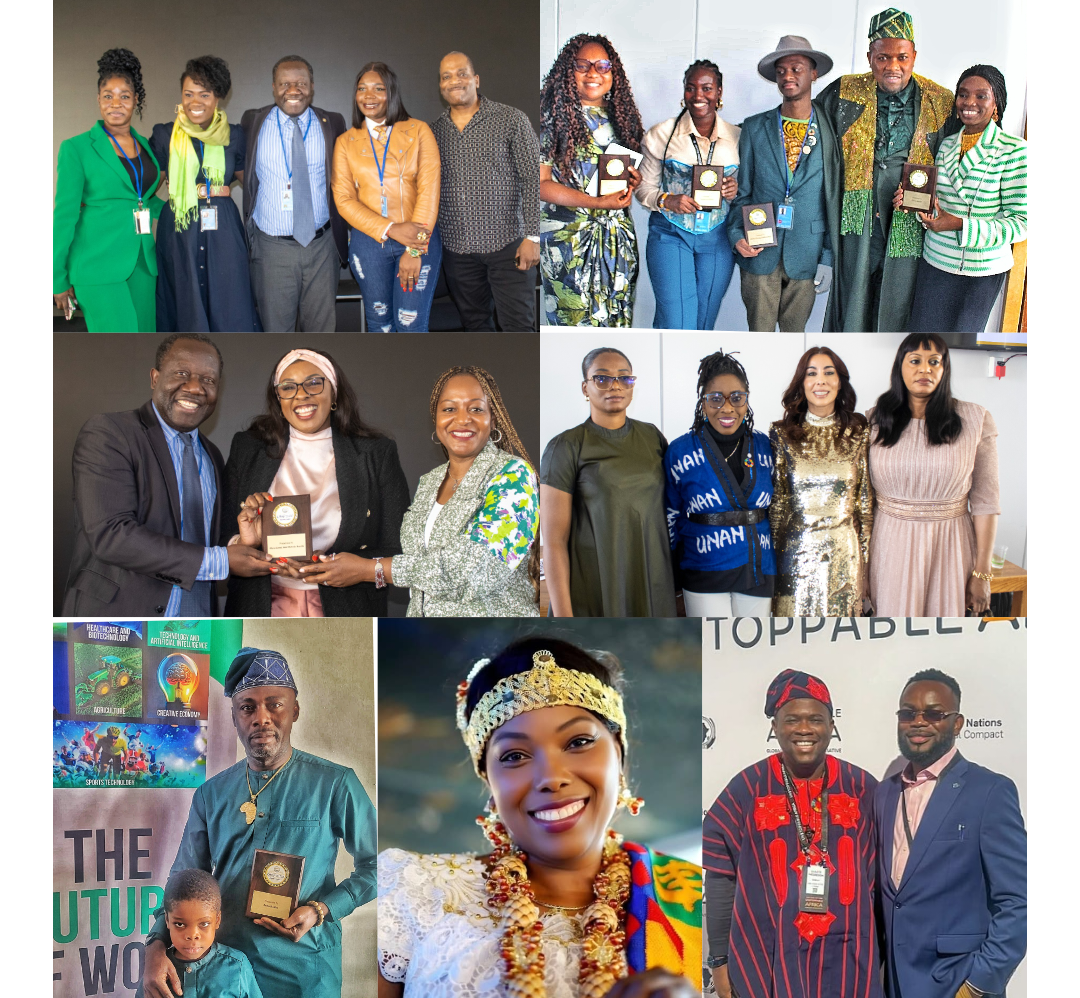
Sponsored Content


